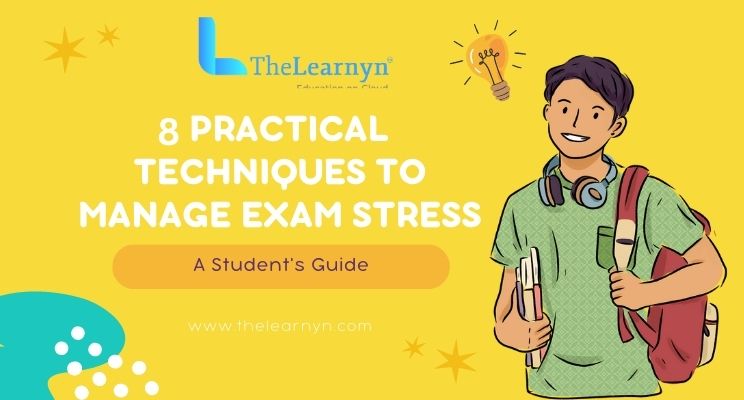Introduction:
Experiencing stress and anxiety during exams is a common challenge for students. The weight of expectations and the fear of failure can negatively impact mental and physical well-being. However, by implementing effective strategies, students can navigate through the exam season with confidence and reduce stress levels. In this article, we will explore eight practical techniques to help students effectively deal with exam stress and perform their best.
Develop a Plan and Stay Organized:
To alleviate the feeling of being overwhelmed, it is important to create a study schedule and break down the syllabus into manageable sections. Establishing a realistic timetable that incorporates regular breaks can provide a sense of control and preparedness, ensuring all necessary topics are covered.
Employ Effective Study Methods:
Experimenting with various study techniques allows students to discover the ones that work best for them. Popular methods include summarizing information in their own words, creating flashcards, and teaching concepts to others. Furthermore, practicing past exam papers can familiarize students with the format and highlight areas that require improvement.
Prioritize a Healthy Lifestyle:
Taking care of physical well-being is crucial during exam periods. Adequate sleep is essential, as a well-rested mind retains information more effectively. Consuming nutritious meals, engaging in regular exercise, and avoiding excessive caffeine or sugary snacks that can cause energy crashes are also important. A healthy body supports a healthy mind.
Utilize Stress-Relief Techniques:
When stress levels rise, effective stress relief techniques come in handy. Deep breathing exercises, meditation, and mindfulness practices can help calm the mind and reduce anxiety. Taking short breaks to indulge in activities one enjoys, such as listening to music or going for a walk, can also clear the mind and restore focus.
Seek Support:
During exam periods, it is important to reach out for support from friends, family, or teachers. Discussing concerns and fears with trusted individuals can alleviate stress and provide valuable insights. Teachers and mentors can offer guidance, clarify doubts, and provide helpful study resources.
Avoid Making Comparisons:
Each student possesses unique strengths and weaknesses. It is crucial to refrain from comparing one’s progress or abilities to others. Exams provide an opportunity to showcase individual knowledge and growth. Concentrating on personal improvement and celebrating achievements, regardless of their magnitude, is key.
Cultivate a Positive Mindset and Visualize Success:
Maintaining a positive mindset throughout exam preparation is crucial. Visualizing success and envisioning oneself performing well in exams can significantly impact confidence and motivation levels. Positive affirmations and self-talk can reinforce belief in one’s abilities to overcome challenges. Reflecting on past accomplishments can also serve as a source of encouragement.
Take Regular Breaks and Relax:
Incorporating regular breaks during study sessions is essential for maintaining focus and preventing burnout. Engaging in activities that promote relaxation and rejuvenation, such as pursuing hobbies or spending time with loved ones, is encouraged. Breaks are not wasted time; they contribute to overall productivity and well-being.
Conclusion:
Managing exam stress requires a proactive and comprehensive approach. By implementing these strategies, students can minimize stress, enhance their confidence, and achieve their best performance during exams. It is important to remember that exams are only one aspect of the educational journey and do not define one’s worth. Prioritizing well-being, maintaining focus, and believing in oneself are key elements to conquering exam stress and attaining academic success. Thelearnyn can act as a support system to help you achieve your dreams and at the same time provide an amazing learning experience.




